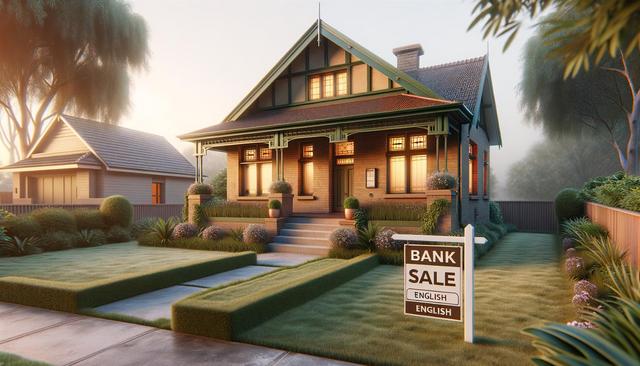What Are Bank Owned Properties?
Bank owned properties, also known as Real Estate Owned (REO) properties, are homes that have been repossessed by a lender after a failed foreclosure auction. When a property owner defaults on their mortgage and the home doesn’t sell at auction, it becomes the property of the bank. These homes are then listed as Bank Owned Properties For Sale through various channels, including bank websites, real estate agents, and property auctions. The main goal of the bank is to recover the unpaid loan amount by selling the property, often at a competitive price.
Buyers who are looking to Buy Bank Foreclosed Homes often turn to these listings for potential savings. While not always a guarantee of a lower price, many Bank Owned Homes For Sale are priced below market value to encourage quick sales. These properties can range from single-family homes to multi-unit dwellings and even commercial spaces. However, it’s important to keep in mind that they are typically sold ‘as-is,’ meaning the bank will not make repairs before the sale.
Why Consider Bank Owned Homes?
There are several reasons why buyers consider REO properties an attractive option. First, the pricing can be more favorable than traditional listings. Banks are not in the business of holding real estate and are generally motivated to sell quickly. Second, the title is usually cleared by the bank before listing, which can make the closing process smoother.
Here are a few advantages of purchasing Bank Repossessed Homes Near Me:
- Potential for lower purchase prices compared to market value
- Opportunity to negotiate directly with the bank
- Less competition than bidding at foreclosure auctions
- Clear title and no back taxes in many cases
That said, buyers should conduct thorough due diligence. It’s advisable to work with an experienced real estate agent familiar with REO Properties For Sale and to get a professional home inspection to assess the condition of the property.
Where to Find Bank Owned Properties
Finding Cheap Bank-Owned Real Estate involves knowing where to look. Many banks list their REO inventory on their own websites or through partnered real estate agents. Additionally, there are specialized property listing platforms that aggregate Bank Auctions Property Listings and REO homes from multiple lenders.
Some key places to search include:
- Bank and lender websites with REO sections
- Real estate platforms that feature foreclosure and REO listings
- County and city public records
- Local real estate agents with REO expertise
Attending property auctions can also be a great way to discover Bank Owned Properties For Sale. However, these events require preparation, including proof of funds and a clear understanding of auction rules.
What to Watch Out For
While the potential for savings is real, buying bank owned homes comes with certain risks. These properties may have been vacant for extended periods, leading to issues such as water damage, vandalism, or neglect. Also, since the bank has never lived in the home, there’s often limited information about its condition. This makes inspections and title searches critically important.
Before proceeding with a purchase, consider the following:
- Always get a professional home inspection
- Check for any liens or title issues
- Understand that repairs and renovations may be necessary
- Work with a real estate lawyer if you’re unfamiliar with the process
Taking these steps can help mitigate risk and ensure that you’re making a sound investment.
Financing and Buying Process
Securing financing for a bank owned home is similar to a traditional home purchase, though some additional paperwork may be required. Some banks may even offer financing directly for their REO properties, which can simplify the process. However, buyers should shop around for mortgage options to find the most favorable terms.
Steps in buying an REO property typically include:
- Getting pre-approved for a mortgage
- Finding a qualified real estate agent
- Searching for Bank Owned Homes For Sale
- Making an offer through your agent
- Conducting inspections and appraisals
- Closing the deal and finalizing the purchase
Patience and persistence are key, as the process can sometimes take longer than a traditional home sale. But for those willing to do the research and legwork, the reward can be a valuable property at a competitive price.




Leave a Reply